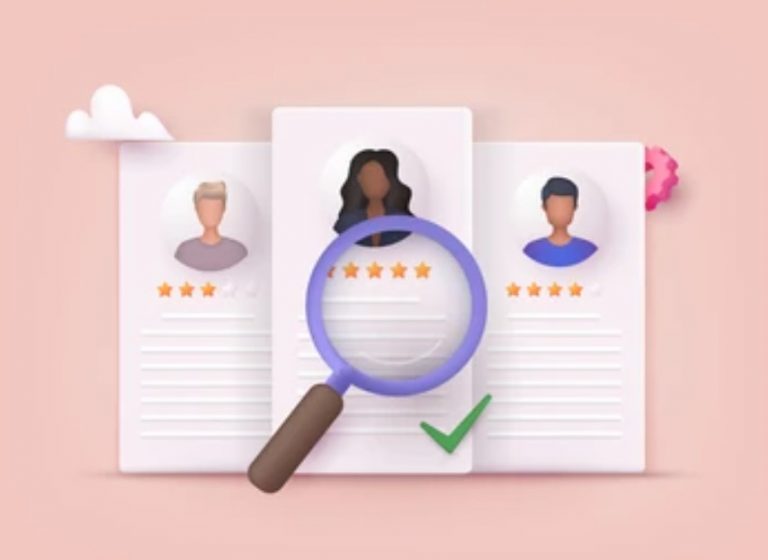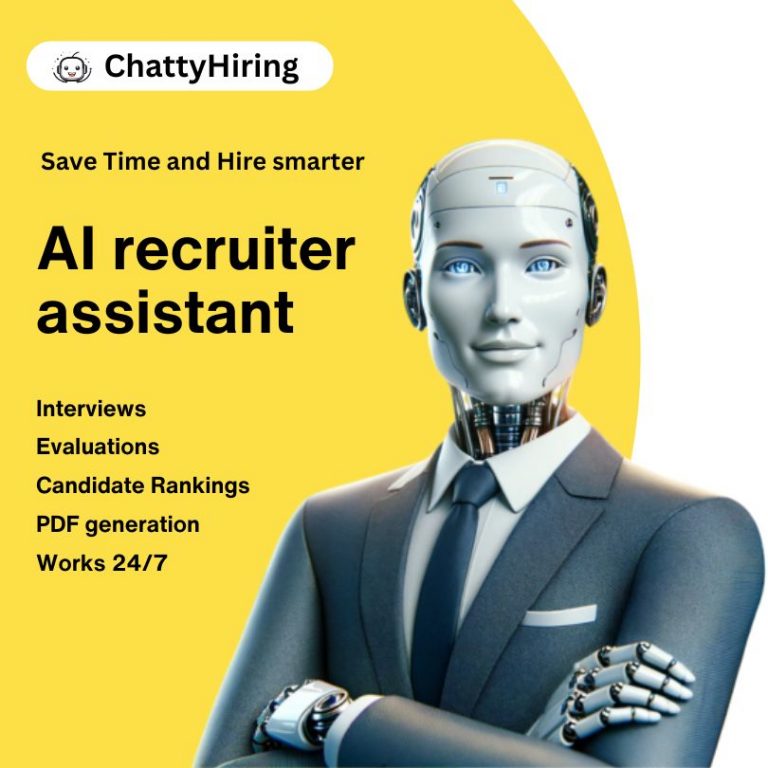Trends in 2024
Artificial intelligence (AI) has moved beyond being an emerging trend to become an essential component of the hiring process in 2024. As companies aim to optimize AI-powered candidate screening and improve efficiency, the adoption of AI tools for recruiting has seen notable growth.
This year, the use of AI in recruitment has surged. According to a report by Gartner, 75% of large companies already use some form of AI recruiting tools, and this number is expected to reach 90% by the end of 2025. AI adoption has accelerated due to its high value in streamlining selection processes and enhancing team productivity.
A LinkedIn study reveals that 67% of recruiters believe AI has significantly improved candidate screening. Automating tasks such as talent sorting and candidate filtering has allowed HR teams to focus on more strategic aspects, like talent retention and improving candidate experience.
AI Tools for Recruiting
This year has seen a proliferation of copilots and AI assistants. Both are AI-based tools, though they serve different functions within an organization.
AI copilots are primarily focused on automating and assisting with internal tasks, such as reviewing and generating content. These systems help employees create, edit, and optimize texts, analyze data, and perform other information-processing tasks. Examples include Microsoft 365 and SAP copilots, which suggest corrections, generate summaries, or complete sentences within documents and emails. These tools work quietly, mainly focusing on improving content quality.
On the other hand, AI assistants are designed to interact directly with people, both inside and outside the organization. These assistants can be chatbots, like those used in customer service, or virtual assistants like Alexa or Google Assistant, which respond to questions, perform tasks, and help users manage their day-to-day activities.
AI assistants focus on user interaction and communication, helping users navigate systems, respond to queries, and complete tasks through conversation. These assistants are optimized for understanding and processing natural language, allowing for more human-like and fluid interactions.
Solutions like ChattyHiring, combine both AI assistants and copilots on a platform where AI assistants conduct pre-screening interviews with candidates and act as copilots by performing assessments and drafting reports to identify optimal candidates.

Challenges and Ethical Considerations
Despite the advances, adopting AI in recruitment is not without challenges. One major issue is the risk of algorithmic bias and the need to comply with data protection regulations, such as GDPR in Europe. The direct use of open platforms like ChatGPT poses risks for companies and professionals.
To address these issues, many companies are adopting advanced AI solutions, where service providers add control measures to prevent bias and ensure data protection. Furthermore, AI integration should be complemented with human oversight, ensuring that final hiring decisions are based on a combination of data and professional judgment.
Looking to the future, AI will continue to evolve and play a key role in recruitment. The next generation of AI recruiters is expected to be even more advanced, with enhanced abilities to evaluate candidates over the long term and tailor the selection process to meet each company’s specific needs.
Additionally, AI may further integrate with other emerging technologies, such as virtual reality (VR) and augmented reality (AR), to create more immersive interview experiences and more precise candidate assessments. Some companies are already exploring VR to conduct job simulations, allowing candidates to demonstrate their skills in a virtual environment before hiring.
In summary, AI is revolutionizing the recruitment world in 2024, offering significant productivity and efficiency benefits with solutions like those from Microsoft, SAP, and ChattyHiring. However, it is essential for companies to address the ethical and privacy challenges associated with its adoption to ensure responsible use of these technologies. Organizations that manage to integrate AI effectively and ethically will be better positioned to attract and retain top talent in an increasingly competitive job market.
-

A passionate advocate for the future of HR innovation. With expertise in leveraging AI to revolutionize recruitment processes, Carlos has a clear vision: empower HR teams while creating meaningful candidate experiences.
View all posts


